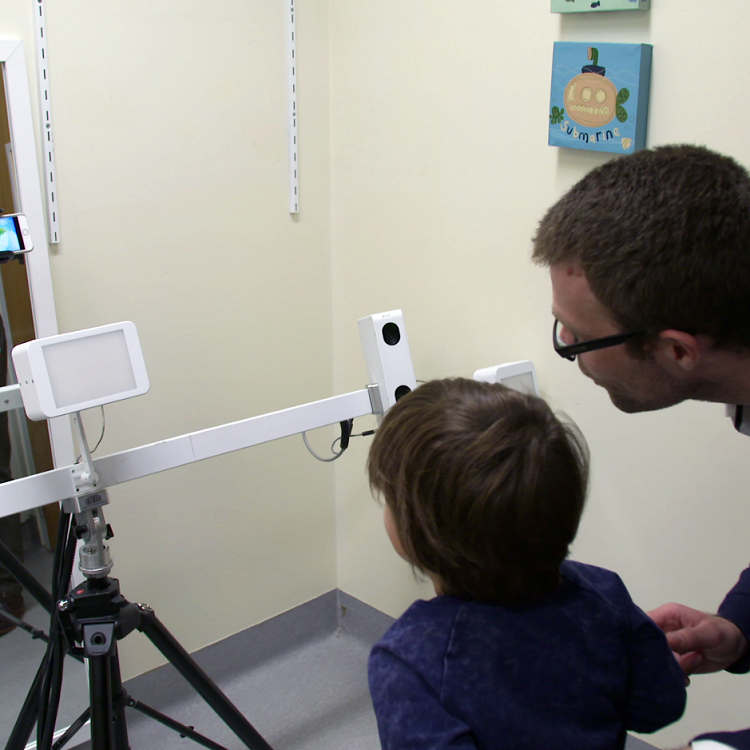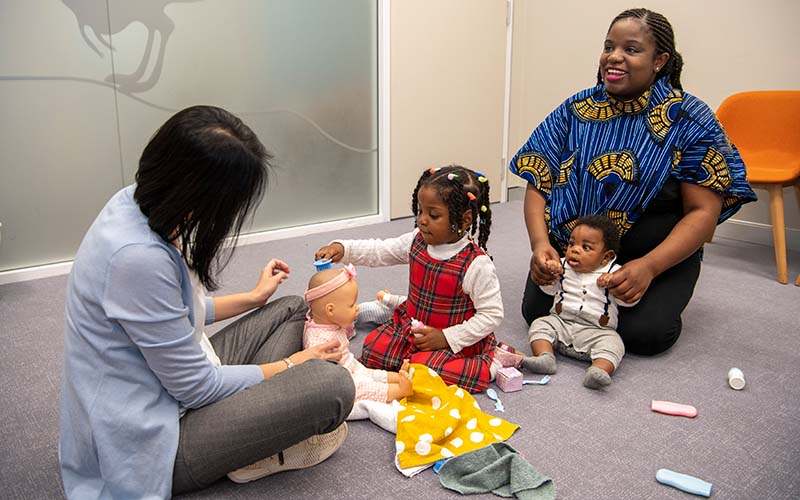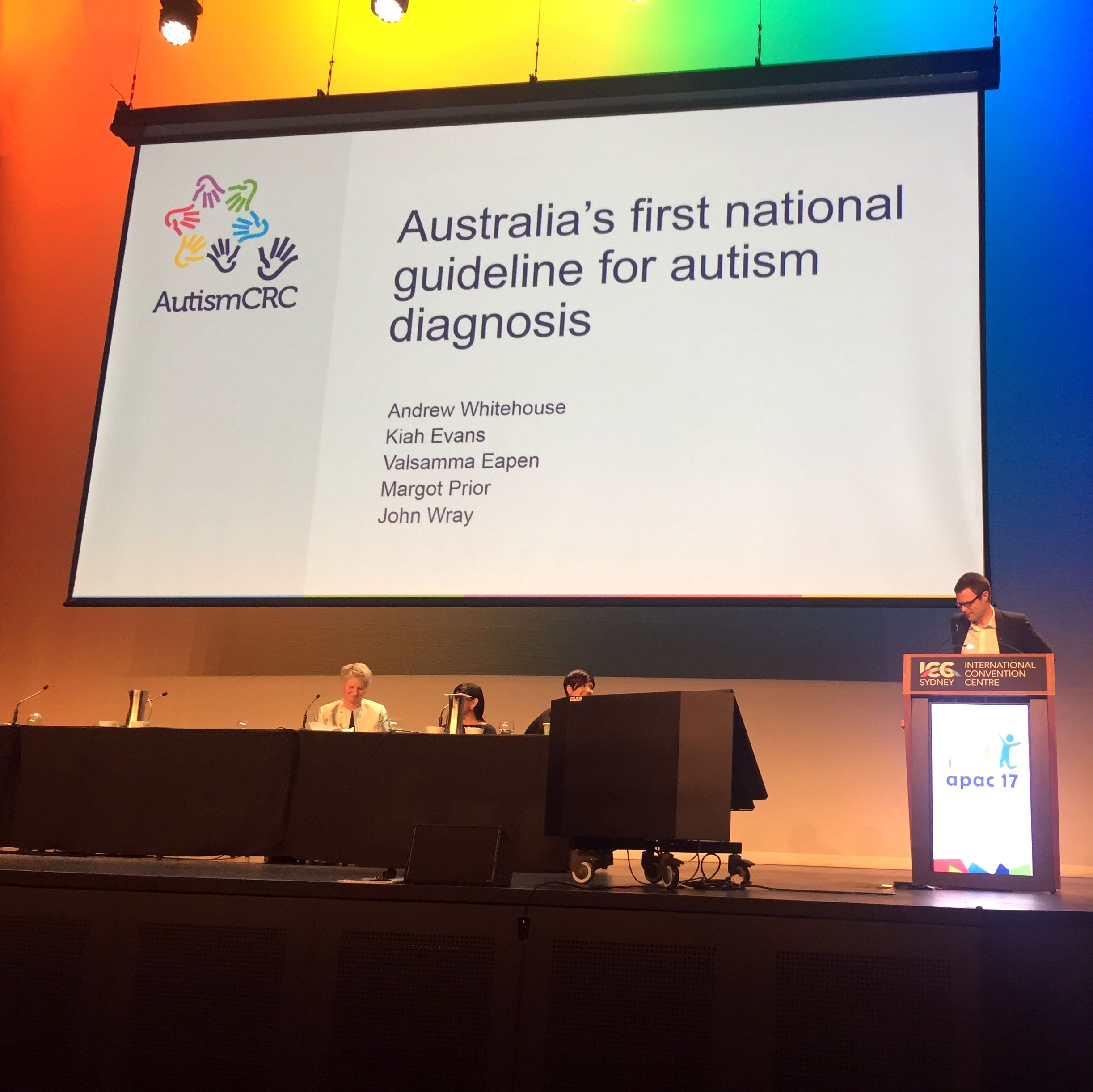Search
Research
Reliability of a novel paradigm for determining hemispheric lateralization of visuospatial functionIn most individuals, language production and visuospatial skills are subserved predominantly by the left and right hemispheres, respectively.
Research
Qualitative aspects of developmental language impairment relate to language and literacy outcome in adulthoodDevelopmental language disorder is a heterogeneous diagnostic category. Little research has compared the long-term outcomes of children with different...

News & Events
Computer algorithm links facial masculinity to autismA new study led by The Kids Research Institute Australia has found a link between masculine facial features and autism.
Research
A randomised-controlled trial of a behavioural intervention for optimising social and communication development in newborns at increased likelihood of autism spectrum disordersAndrew Kandice Matt Melissa Videos Whitehouse Watch and listen to Andrew Varcin Cooper Licari PhD M.Psych (Clinical), PhD BCA Marketing, BSc

The Kids' autism research takes place at CliniKids, a centre that integrates world-class research with a clinical service for children with developmental delay and/or autism and their families.
Research
Genome-Wide Analyses of Vocabulary Size in Infancy and Toddlerhood: Associations With Attention-Deficit/Hyperactivity Disorder, Literacy, and Cognition-Related TraitsThe number of words children produce (expressive vocabulary) and understand (receptive vocabulary) changes rapidly during early development, partially due to genetic factors. Here, we performed a meta-genome-wide association study of vocabulary acquisition and investigated polygenic overlap with literacy, cognition, developmental phenotypes, and neurodevelopmental conditions, including attention-deficit/hyperactivity disorder.
Research
Identification of subgroups of children in the Australian Autism Biobank using latent class analysisThe identification of reproducible subtypes within autistic populations is a priority research area in the context of neurodevelopment, to pave the way for identification of biomarkers and targeted treatment recommendations. Few previous studies have considered medical comorbidity alongside behavioural, cognitive, and psychiatric data in subgrouping analyses.
Research
Reliability, Validity and Acceptability of the PEDI-CAT with ASD Scales for Australian Children and Youth on the Autism SpectrumThe PEDI-CAT (ASD) is used to assess functioning of children and youth on the autism spectrum; however, current psychometric evidence is limited. This study aimed to explore the reliability, validity and acceptability of the PEDI-CAT (ASD) using a large Australian sample.

News & Events
Australia’s first draft national guideline for autism diagnosis releasedAustralia’s first draft national guideline for autism diagnosis has today been released for public consultation.

News & Events
The Kids Research Institute Australia researcher awarded prestigious Eureka awardProfessor Andrew Whitehouse awarded the most prestigious award in the country for young researchers – the 3M Eureka Prize for Emerging Leader in Science.
